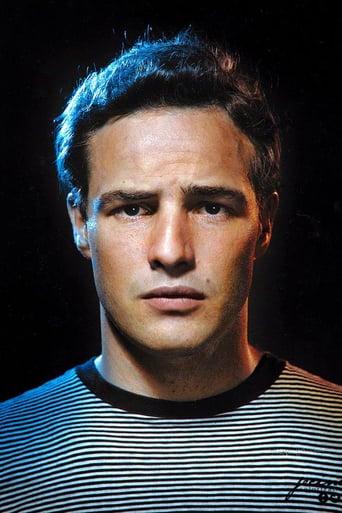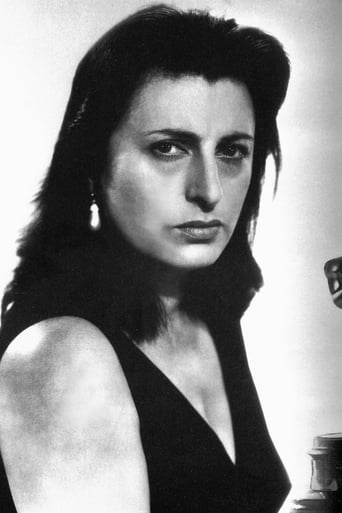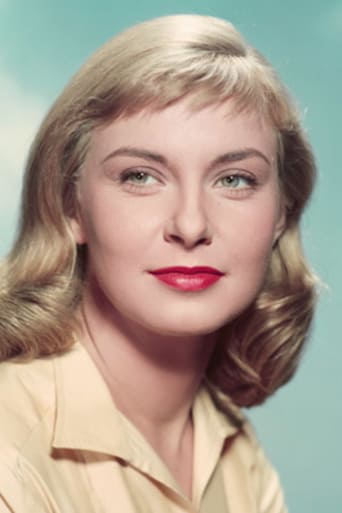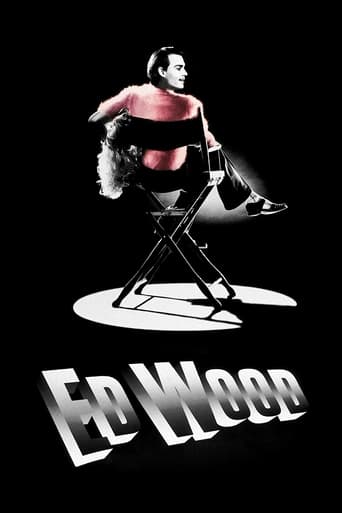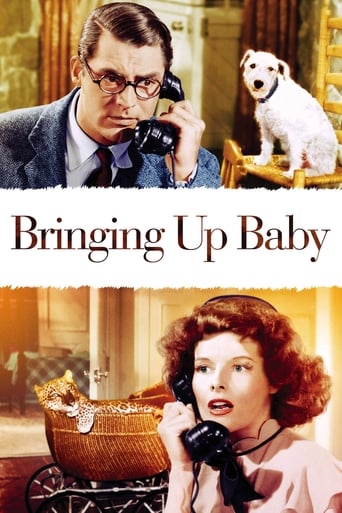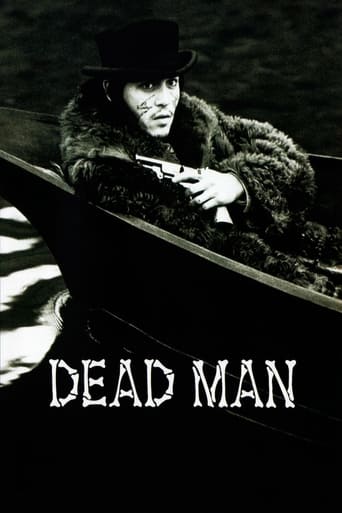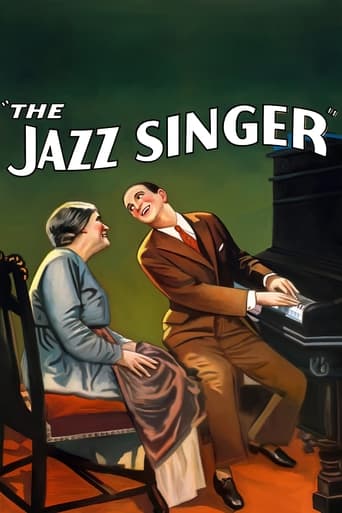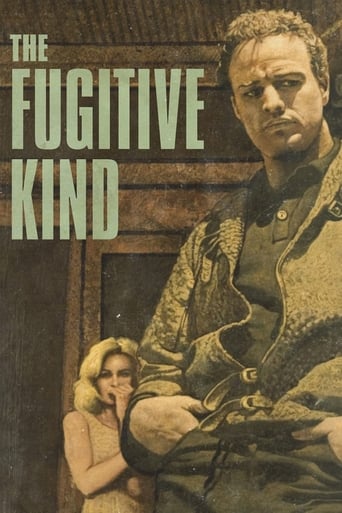
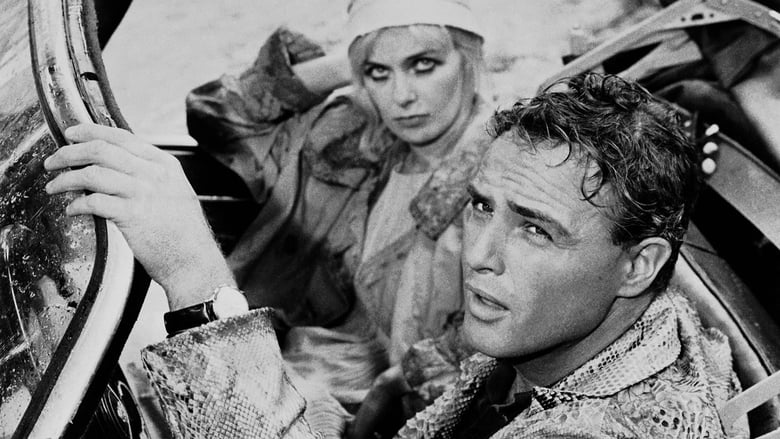
The Fugitive Kind (1960)
Val Xavier, a drifter of obscure origins, arrives at a small town and gets a job in a store run by Lady Torrence. Her husband, Jabe M. Torrance, is dying of cancer. Val is pursued by Carol Cutere, the enigmatic local tramp-of-good-family.
Watch Trailer
Cast


Similar titles
Reviews
Fantastic!
Admirable film.
One of the worst ways to make a cult movie is to set out to make a cult movie.
The tone of this movie is interesting -- the stakes are both dramatic and high, but it's balanced with a lot of fun, tongue and cheek dialogue.
"Orpheus Descending" may be one of Tennessee Williams' lesser plays but this screen version, under the more commercial title "The Fugitive Kind", is a fairly juicy entertainment. thanks for the most part to the playing of Marlon Brando, Anna Magnani and Joanne Woodward. They are superb and lift the material, which is far from first-rate, to an altogether higher plain. The director was Sidney Lumet and while it may not be the best thing he's ever done, he certainly ensures we are never bored.Williams himself adapted his play along with Meade Roberts and he signposts all the big moments well in advance. Once you hear Magnani's Lady Torrence tell of how vigilantes burned down her father's orchard with him in it, you know how things will turn out - badly! The superb cinematography, in widescreen and in black and white, is by the great Boris Kaufman and the nice, bluesy score is by Kenyon Hopkins.
There's something basically elemental about a character who wants to improve his life and who gets knocked down at every turn. This is the stuff of all the great stories of success in the modern world and The Fugitive Kind, with its religious and sexual imagery rides this theme to a glorified dramatic climax.In a slow southern town in Mississippi, entertainer Valentine "Snakeskin" Xavier (Marlon Brando) wanders into trouble when he tires of fast girlfriend Carole Cutrere (Joanne Woodward) and her friends and decides to start a new life. He finds work in a store belonging to Lady Torrence (Anna Magnani) a repressed Italian widow married to an overbearing racist. Lady pines for the old days when she and her first husband had an estate with fruit trees and supposed happiness. Husband Jabe M. Torrance (Victor Jory) is dying of cancer and tries to remain an obstacle to Lady's opening a new money-making addition to the failing store. When she enlists Valentine to be her partner, the relationship gets out of hand and the result is a tragic one for many.Tennessee Williams in his day was a popular writer for actors because he laid out very speakable lines, which were also incisive words that revealed the core of a characters needs and desires in ways that were completely acceptable regardless of the degradation of the characters spirit.Although the film abounds with monologues that exhibit the high-minded attitudes and values of the characters and the writer of the material, the Gothic southern landscape supports completely this verbose derangement of verbiage. Brando has moments in which he sears through the screen with his seemingly inept performance. It's hard to knock the actor no matter how caricatured his performances have become. In his day Brando was the man for actors precisely because he was able to sustain such performance for the camera.Anna Magnani as Lady Torrance delivers one of the best perfs of her life as the repressed wife of a southern racist. How this relationship began we can only guess, and that's not important. What we get from the coupling is the final outrage resulting from years of built-up hatred. Her dynamic interaction with Brando is one for the film historians (although it is reported that Brando wasn't impressed). For fans like me she can never deliver a flat performance.Director Sidney Lumet surely must have felt he was reining a glorious beast of a film with its hot star cast and edgy story. The Mississippi locale doesn't sound too much like the deep south- we can actually understand the characters speaking. The look of the movie feels like a lost world with a beautiful high-contrast black-and-white imagery that does a lot for the performances, although some long monologues of Brando talking about the religious flying creature of his soul may have you nodding off.No matter how you look at it The Fugitive Kind is a piece of Hollywood history that remains a testament to all involved, actors, writer, and director, and clearly shows how a period of studio filmmaking in America reached great heights. This remastered version shows the movie at its best.
The Fugitive Kind (1960)This is one of those great movies that slips its way into that big gap between the great Hollywood Golden Age to the great New Hollywood of the late 1960s. An awful lot of films from the period between (1955-65) are weak or even downright bad, big budgets and all. The Hollywood gems in that time are usually a little gut wrenching, and many are based on plays, or push political issues (I'm thinking of "The Apartment" and "The Manchurian Candidate"). The famous directors coming to their own during time include Elia Kazan and Robert Wise, and of course Sidney Lumet, who directed this one.This is all working class, plainspeaking, emotive material. Right from the get-go with leading man Marlon Brando doing a long take as he stands before a judge, we are filled with heart-wrenching stuff, people who want to be something and don't know how, or people with big hearts that are broken or dirty. The cast, beyond Brando, is terrific: Joanne Woodward as a young floozy with a sharp sense of independence, Maureen Stapleton as a simple and faith filled wife of the sheriff, and Anna Magnani, intense and troubled but superior in her own out of place way.There are powerful displays of white narrow-mindedness (call it bigotry, but it is largely aimed at just anyone they don't like) that don't quite fall into clichés, there is love that shouldn't be and that never is, there is old world morality and inbred local gossipy immorality. Things are bound for collision even by twenty minutes in, and there are innuendoes and hidden histories waiting to blossom. Lumet has a knack for the serious, with his 1957 breakthrough film "12 Angry Men" a template for his career. As lively and even crazy as this movie is, it's also probing deeply into human woe and maladjustment (often deliberate). The core of the writing belongs to Tennessee Williams, who of course is all about inner troubles and outward misunderstood or mistaken actions. There is nothing superficial here, not in the acting, the filming, or the scenes (set in the South but filmed near Saratoga Springs, New York). And if the wet, dark nights scenes and interiors with people quarreling and fighting aren't enough to suck you in, the story, about wanting to live, nothing more, is beautiful and important. All four of the main characters are deeply good people, and all flawed in small but debilitating ways. Which should sound familiar. As over the top as it sometimes seems, you'll identify with the position some of the people end up in. Brando is temperamental but patient and with a profound sense of justice. Woodward is a free spirit misunderstood (and punished) by the uptight and hypocritical society around her. The themes are frank for 1960, including an implication of a male so manly and irresistible the women want him (and get him) even when it's completely wrong. And when it's right. The sexuality, partly pumped up by the writing of the openly gay playwright (Williams), is all over Brando's face and in his scenes. And this is his movie.High high drama, but from within. And explosive. Don't miss it.
"The Fugitive Kind" plays like Tennessee Williams' B-side, the second-half of a "Streetcar" double feature... Director Sidney Lumet does a fantastic job tapping into the loneliness, desire, and humanity that were the hallmarks of Williams' writing. And Brando is still smoking from his "Streetcar" heat...Marlon was still in his golden era, and he's the reason to see this movie. His performance here is pure sexual magnetism, as he effortlessly plays a man whose every move oozes eroticism. How much so? At one point in the movie Anna Magnini watches him walk by with a cigarette in his hand and blushes, asking why he's so dirty. At another point, he confesses his gift/curse for being able to "wear women down." Let the levees break...This is the Brando everyone talks about, and every tired cliché is absolutely true: you cannot take your eyes off him. Smoldering, strong, and yet embarrassingly vulnerable- both physically and emotionally. This is the stuff dreams are made of.Joanne Woodward gives a brilliantly naked performance as a beatnik, and she reminded me strongly of Jessica Lange. Anna Magnani is suitably raw, and Victor Jory appropriately evil.The show here is Marlon, and if you don't know why he's considered the best film actor of all time, just take a look at him here.GRADE: B


